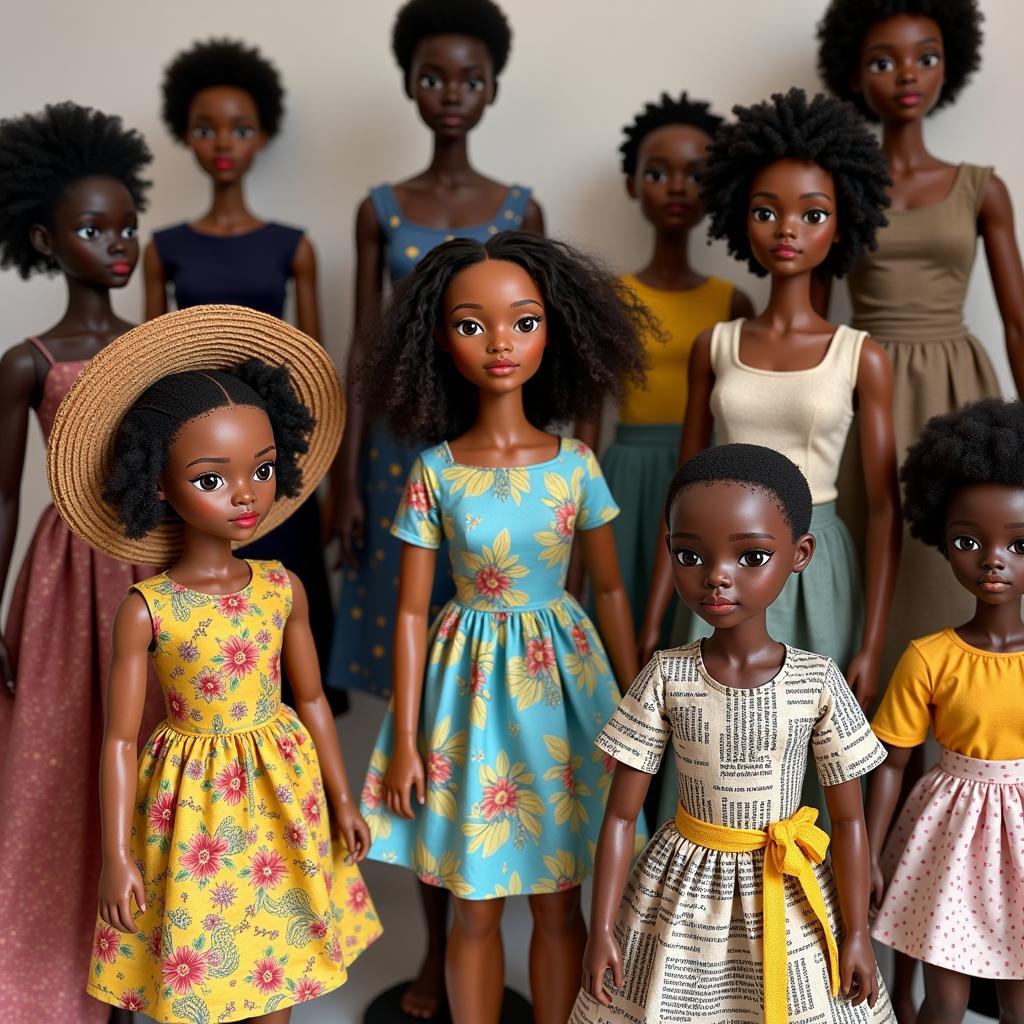The Untold Stories of African American Industrial Workers
African American Industrial Workers played a vital role in shaping the industrial landscape of the United States. Despite facing significant obstacles and discrimination, they made invaluable contributions to the nation’s economic growth and technological advancement. Their stories often go untold, but their resilience, determination, and talent deserve recognition. This article will delve into the experiences of African American industrial workers, shedding light on their struggles, triumphs, and enduring legacy.
From the Fields to the Factories: The Great Migration and Industrial Labor
The early 20th century saw a mass exodus of African Americans from the rural South to industrial centers in the North and Midwest, a phenomenon known as the Great Migration. This movement was driven by a combination of factors, including racial prejudice, economic hardship, and the promise of better opportunities in the North. Many African Americans sought work in factories, drawn by the prospect of higher wages and a chance to escape the brutal realities of Jim Crow segregation.
However, the transition to industrial life was not without its challenges. African Americans faced widespread discrimination in employment, housing, and social life. They were often relegated to the most dangerous and low-paying jobs, and subjected to unfair treatment and segregation within the workplace. Despite these obstacles, they persevered and made significant contributions to the war effort and the burgeoning postwar economy.
Shaping the American Landscape: African American Industrial Workers’ Impact
The contributions of African American industrial workers are undeniable. They played a crucial role in the production of war materials during World War II, working in factories that built ships, tanks, aircraft, and other critical supplies. Their labor was essential to the nation’s success in the war, and their sacrifices paved the way for future generations of African Americans to pursue their dreams.
Beyond the war effort, African American industrial workers played a vital role in shaping the American economy. They worked in various industries, including steel, automotive, and manufacturing, contributing to the growth of these sectors and the nation’s overall prosperity. Their skills, dedication, and innovation helped to drive industrial progress, leaving an enduring legacy on the American landscape.
“It was hard work, but we were determined to make a better life for ourselves and our families.” – Thomas Jackson, a former steelworker in Pittsburgh
Overcoming Adversity: Resistance and Advocacy
Despite the challenges they faced, African American industrial workers never gave up their fight for equality and justice. They organized unions, participated in protests, and advocated for fair treatment in the workplace. Their activism played a significant role in advancing civil rights and pushing for legislation that would protect workers’ rights.
“We had to stand up for ourselves, because no one else was going to do it for us.” – Mary Johnson, a former factory worker in Detroit
A Legacy of Resilience and Progress
The legacy of African American industrial workers is a testament to their resilience, determination, and unwavering spirit. They endured hardship, discrimination, and injustice, yet they continued to work, build, and contribute to the nation’s progress. Their stories serve as a powerful reminder of the challenges faced by marginalized communities and the importance of fighting for equality and justice.
Conclusion:
The contributions of African American industrial workers deserve to be recognized and celebrated. Their stories are a testament to the resilience, determination, and talent of a community that has faced significant obstacles throughout history. Their legacy inspires future generations to strive for a more just and equitable society.
Frequently Asked Questions (FAQ)
Q: What were some of the most common jobs held by African American industrial workers?
A: African American industrial workers held a wide range of jobs, including laborers, factory workers, machinists, welders, and assembly line workers. They also worked in service industries, such as transportation and sanitation.
Q: How did unions help to improve the lives of African American industrial workers?
A: Unions helped to improve the lives of African American industrial workers by advocating for better wages, working conditions, and job security. They also helped to fight against discrimination and segregation in the workplace.
Q: What are some notable examples of African American industrial workers who made a significant impact?
A: Some notable examples include Rosa Parks, who worked as a seamstress in a factory before becoming a civil rights icon, and Jesse Jackson, who began his career as a steelworker and later became a prominent civil rights leader.
Q: What are some resources available to learn more about the history of African American industrial workers?
A: Several resources are available, including books, documentaries, and websites. Some notable sources include the National Archives, the Smithsonian Institution, and the African American Civil War Museum.
